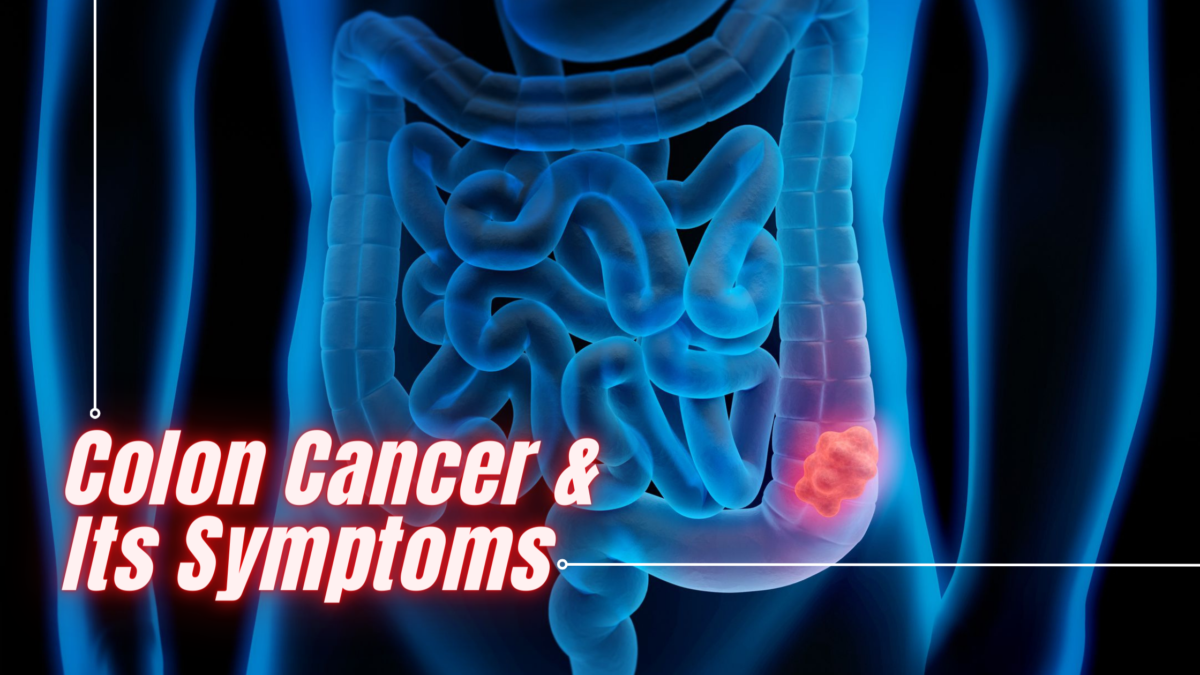Colon Cancer and Its Symptoms

To understand the term ‘Colon Cancer’, one must first know what colon is. If one would lay their digestive tract on the ground in a straight line, it would form a straight tube of about 10 meters in length. The length of the last 1.5 meters of that is called a colon. It is also known as the large intestine. In this part of your digestive tract, the waste of your food is processed for the last time. This processing of waste includes reabsorbing water and other important nutrients such as vitamin k and stores the waste before excretion. It is obvious that if some disorder occurs in this area, major bodily functions get disrupted too. One of the most common disorders of the colon is known as colon cancer and in this blog, we will learn about some signs and symptoms of colon cancer and how is it treated.
What is colon cancer?
The cells in the lining of the colon have the property of constantly renewing themselves but this process of cell renewal is regulated by a gene. Sometimes, this gene with time stops functioning properly which leads to the excessive growth of new cells. These abnormally grown cells clump together and form aggregates known as polyps. The majority of these polyps remain harmless throughout the life span but some of them become cancerous when the cells in these polyps begin to grow more rapidly. The growth time of polyps varies from person to person. This transformation of polyps into cancer is known as colon cancer.
What causes colon cancer?
Colon cancer is one of the most common and preventable types of cancer. Although the information on what causes this cancer is still in a partially concrete form, what is known of it is that when colon cancer occurs, a gene known as an oncogene is activated in the polyp. Also, during the time of uncontrolled growth of cells in the polyps, a gene known as the tumor-suppressor gene is lost in these polyps.
The activation of oncogene occurs when there are too many copies of it or these in mutation in it. However, the causes of this activation are still a thing under research.
What are the complications of colon cancer?
The worst complication to face because of colon cancer is when cells in the cancer divide and spread, they break the lining of the colon and are scattered in the lymph and blood vessels. These vessels carry these cells all over the body resulting in the risk of malignancy of this cancer. What malignancy means is when the cancer of one region can be seen in any other region of the body.
Symptoms of colon cancer
Colon cancer, at its early stages of polyp development, does not show any symptoms but when cancer develops, the symptoms vary. These symptoms depend on the location of cancer inside the colon and its size. Some of the prevalent symptoms are as follows:
- Uncontrollable bowel disorders that include:
- Chronic constipation
- Diarrhea
- Change in size or shape of stool
- Rectal bleeding or blood is seen in stool or toilet
- Pain in the abdomen
- Cramps in the lower stomach
- Feeling of the urgency of bowel movement even when there is no need
- Inexplicable tiredness
- Weight loss
Screening of colon
Despite the silent nature of colon cancer, there is a solution to completely getting rid of it and stopping the complication it can cause. We have become extremely good at detecting and removing polyps before they can cause cancer. This is done by a process known as screening. The increase in the number of people getting screened has inevitably decreased the cases of colon cancer around the world. This screening can be done by procedures such as CT scans and colonoscopy. Colonoscopy is the only screening test that is used to both checks for polyps and remove them.
In a colonoscopy, the colon is tested for polyps by a narrow endoscope. If any polyp is seen, it is immediately removed from the inner surface of the colon and is tested for its nature.
Who is at risk of having colon cancer?
The appropriate age to begin screening varies from person to person. It is often decided for a person to get screened if they fit in any group of people at risk of getting colon cancer.
- Most cases of colon cancer occur in patients who are above 50 years of age.
- Also, there is a higher risk group that includes people with family history and those who suffer from genetic syndromes.
- Some people with inflammatory diseases are also at high risk of getting colon cancers
Access to health care and regular screenings are two of the most important things by which you can prevent colon cancer.
At Alfa Gastro and Liver Care, you will find both the precise care for colon cancer and regular screening for its prevention.
